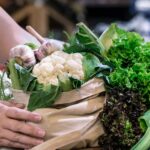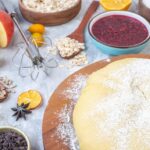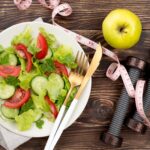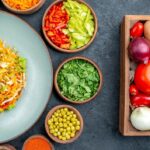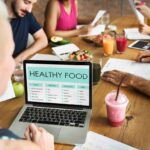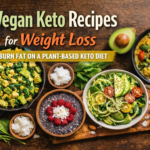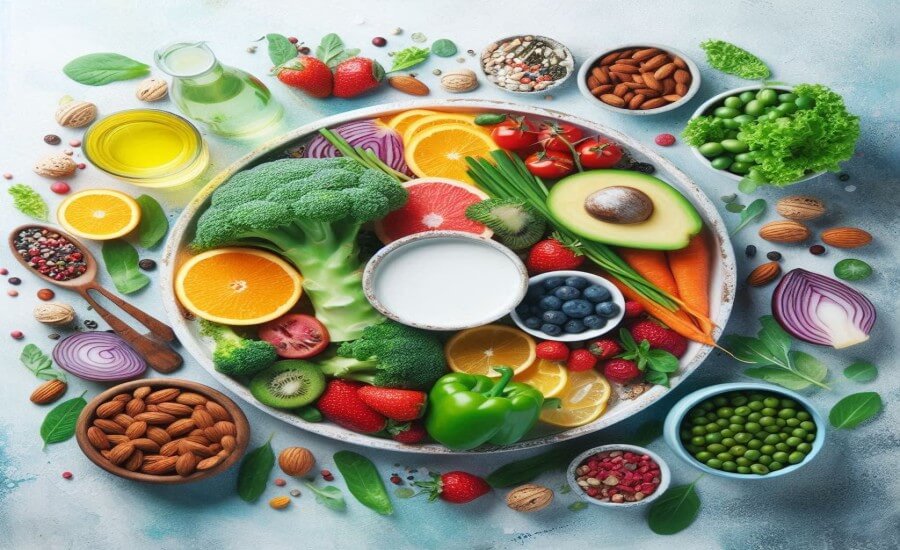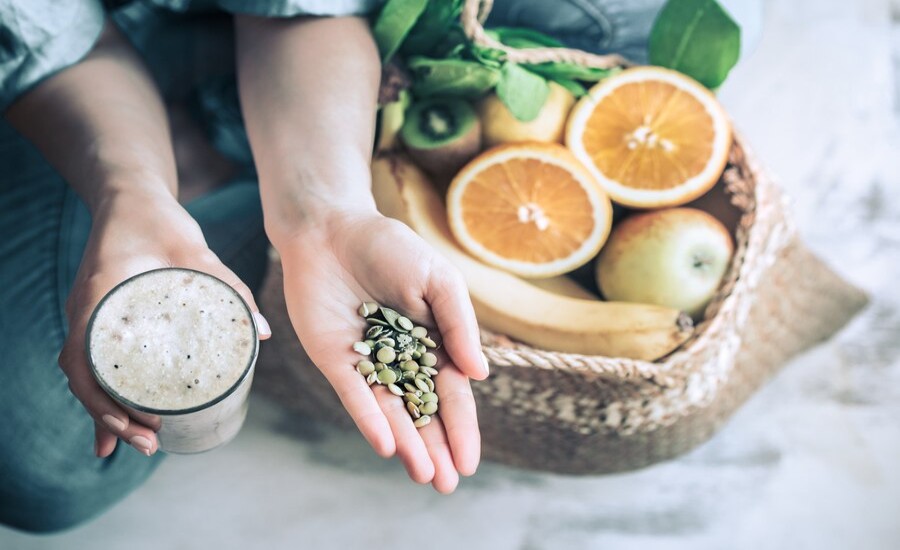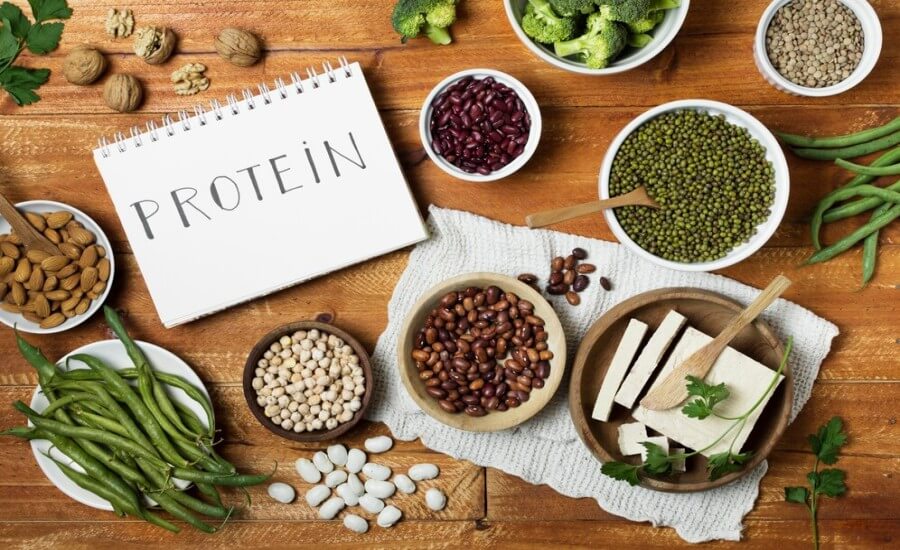This report provides a comprehensive, multi-dimensional analysis of the function and necessity of the “Ask a Dietitian: Your nutrition questions answered” format. Using the lenses of nutritional science, ethical advocacy, practical application, and cultural observation, we explore how direct Q&A with a Registered Dietitian (RD) translates complex research into actionable advice.
Key findings demonstrate that RDs are critical for mitigating misinformation, ensuring evidence-based communication, empowering individuals with tailored advice, and driving public health literacy. This analysis synthesizes these perspectives to highlight the critical role of the RD as a reliable source in the often-confusing landscape of dietary information.
Nutritional Crossroads
The “Ask a Dietitian” format places the consumer at a crucial “Nutritional Crossroads.” Today, individuals are bombarded with often-contradictory information from social media, unverified sources, and commercial interests.
The RD serves as the verified, evidence-based beacon at this crossroads. The function of this format is to cut through the noise, translating complex, peer-reviewed nutritional science—such as nutrient bioavailability, metabolic pathways, and disease management guidelines—into simple, personalized, and actionable answers. This direct communication ensures that dietary choices are based on scientific rigor, not fleeting trends.
LENS 1: Nutritional Analysis
The Nutritionist’s View: Translating Evidence into Action
The core value of an “Ask a Dietitian” column lies in its fidelity to evidence-based practice. The RD’s perspective is grounded in scientific literacy, utilizing clinical studies, epidemiological data, and established dietary guidelines (like the Dietary Guidelines for Americans or specific clinical protocols).
“Our role is not to offer opinions, but to translate the findings of randomized controlled trials and comprehensive meta-analyses into practical advice,” asserts Dr. Maya Sharma, a Registered Dietitian specializing in translational research. “When answering questions about protein, for instance, we ensure the answer addresses the individual’s specific age, activity level, and health history, going beyond generic recommendations to discuss factors like protein quality and timing.”
Nutritional Deep Dive: Bioavailability and Synergy
A dietitian’s answer often incorporates complex concepts simplified for the reader. For example, when asked about plant-based iron, the RD explains the need for Vitamin C synergy to enhance non-heme iron absorption. When discussing calcium, they may explain how absorption is affected by phytates and oxalates. This level of detail, often overlooked by lay sources, ensures effective nutrient utilization.
Common Misconceptions vs. Reality:
- Misconception: Dietitians and nutritionists are interchangeable terms.
- Reality: A Registered Dietitian (RD/RDN) holds specific academic degrees, completes a supervised practice program, and passes a national examination, making them the legally recognized and credentialed experts in clinical and food systems nutrition.
Scientific Evidence diagram showing the key factors that influence nutrient absorption (e.g., presence of complementary nutrients, anti-nutrients, gut health).
LENS 2: Ethical Framework
The Ethical Advocate’s Stance: Fighting Misinformation and Protecting Public Trust
The “Ask a Dietitian” format is, for the ethical advocate, a moral responsibility to counter the rampant spread of nutritional misinformation. The ethical commitment is to protect vulnerable consumers from dangerous, expensive, or ineffective diet claims that often accompany product sales.
“The ethical imperative of the RD is to be a non-biased source of truth,” explains Dr. Chen Li, an advocate for public health ethics. “When a reader asks about a trendy detox or supplement, the RD’s answer must be clear, evidence-based, and uncompromised by commercial interest. This commitment to transparency and integrity is crucial for maintaining public trust in the science of food.”
Critical Reassessment: Conflict of Interest
The ethical advocate must critically assess any source of nutrition information for conflict of interest. Dietitians are bound by codes of ethics that prioritize client welfare and scientific evidence over personal gain, making their platform inherently more trustworthy than one sponsored by a supplement company. This approach challenges the common practice of using anecdotal evidence and celebrity endorsements to sell false hope.
LENS 3: Environmental Impact
The Environmental Scientist’s Analysis: Guiding Sustainable Food Choices
The questions directed to a dietitian often intersect with environmental concerns, even when not explicitly asked. The Environmental Scientist’s analysis focuses on how the RD can subtly or explicitly guide readers toward ecologically sound food choices.
“A question about a ‘high-protein diet’ can be answered not just with food sources but with sources that have a lower environmental footprint,” states Dr. Hannah Weiss, an environmental impact researcher. “By consistently recommending legumes, pulses, and regional whole grains—which are nutritionally superior and generally require less water and land than animal-based proteins—the RD drives a powerful, large-scale shift toward sustainable consumption patterns.”
Market Transformation Maps: Low-Impact Recommendations
The cumulative effect of thousands of RD recommendations can shape the food market. By steering consumers towards whole, unprocessed foods, the RD reduces demand for heavily processed, high-waste, and high-mileage products. This shift encourages sustainable ingredient acquisition and supports localized food systems.
LENS 4: Practical Application
The Everyday Practitioner’s Experience: Personalized, Actionable Answers
For the everyday practitioner, the “Ask a Dietitian” format provides a bridge between general guidelines and their specific daily reality. The value lies in the practical application and tailoring of the advice to fit busy schedules, unique tastes, and specific conditions.
“Readers aren’t looking for textbook definitions; they’re looking for an answer that works when they’re standing in front of an empty fridge at 7 PM,” advises Maria Rodriguez, a dietitian focused on community practice. “When a question about meal prepping comes in, the answer must include practical tips like batch cooking, simple recipes, and ingredient rotation—addressing the practical challenges of time and flavor fatigue.”
Daily Impact: Customized Solutions
Answering a question like “How can I get more fiber?” requires more than a list of foods. It requires suggestions for gradual integration to avoid digestive distress, specific fiber amounts, and low-cost, accessible food recommendations (e.g., canned beans, frozen berries). This customized approach is key to long-term dietary adherence.
LENS 5: Cultural Significance
The Cultural Observer’s Perspective: The Authority of the White Coat
The cultural significance of the “Ask a Dietitian” column lies in its ability to harness the authority of credentialed expertise (“the white coat”) to address deeply personal and culturally charged topics like food, body image, and health.
“In a culture saturated with quick fixes and wellness gurus, the Dietitian embodies a valuable cultural figure: the credentialed, objective expert,” observes Dr. Ethan Poole, a sociologist of public health. “By fielding questions directly, the column validates the reader’s concerns while firmly establishing the boundary between medical evidence and cultural trends. This format champions health literacy as a civic good.”
Turning Point Analysis: The Digital Health Revolution
A key turning point was the RD’s embrace of digital platforms (blogs, social media, online Q&A). This moved the dietitian out of the clinical setting and into the public sphere, making their expertise accessible to a wider audience and directly competing with the unregulated information of wellness influencers.
Voice of Experience: Building Community
“I’ve found that answering one reader’s question publicly often helps hundreds of others with the same exact issue,” shares RD and columnist Sarah Kim. “The column builds a community of informed seekers, shifting the culture away from diet fads toward sustainable, balanced eating.”
PERSPECTIVE INTERSECTION MATRIX
- Nutrition (LENS 1) cap Ethical Framework (LENS 2): Scientific evidence (LENS 1) forms the basis for the ethical commitment to debunking dangerous misinformation and protecting consumer trust (LENS 2).
- Practical Application (LENS 4) cap Cultural Significance (LENS 5): The need for personalized, actionable advice (LENS 4) helps the RD integrate evidence-based practices into specific cultural food habits (LENS 5), making the advice both effective and socially relevant.
- Environmental Impact (LENS 3) cap Nutritional Analysis (LENS 1): Recommending nutritionally dense, whole plant foods (LENS 1) inherently favors sources that are generally more sustainable and low-impact (LENS 3).
- Synthesis: The Q&A format serves as the crucial link that translates complex scientific knowledge into ethical, actionable, and culturally relevant public health guidance.
MISCONCEPTION ANALYSIS
| Misconception | Reality |
| “Dietitians only work in hospitals and clinics.” | RDs work in diverse settings: sports nutrition, community health, food systems, research, corporate wellness, and media, making their expertise broad and adaptable. |
| “Asking a dietitian is expensive or intimidating.” | Columns like this and community health programs offer free, accessible advice. The goal is to demystify nutrition, not complicate it. |
| “A dietitian will put me on a restrictive diet.” | RDs prioritize sustainable, flexible eating patterns that align with the client’s preferences and lifestyle. Restrictive diets are generally viewed as temporary or medically necessary. |
| “All dietary advice is purely subjective (it depends on the person).” | While application is individualized, the fundamental science (metabolism, nutrient needs, disease management) is universal and evidence-based. |
KEY TURNING POINTS
- The Digital Media Explosion (2010s): The shift from print columns to interactive online Q&A expanded the reach of RDs exponentially, allowing them to rapidly address emerging trends and questions.
- Increased Focus on Preventative Care (Ongoing): As public health shifts toward prevention, the RD’s role in proactive education (via formats like this) has become central to healthcare strategy.
- The Rise of Specialized Certifications: The development of advanced certifications (e.g., Board Certified Specialist in Sports Dietetics, Certified Diabetes Educator) ensures that RDs can provide highly specialized, evidence-based answers to niche questions.
SYNTHESIS & RECOMMENDATIONS
The “Ask a Dietitian” column is a vital piece of the modern health information ecosystem. It successfully leverages the scientific credibility of the Registered Dietitian to address practical challenges and ethical responsibilities inherent in dietary choice.
Convergent Reflections: The need for objective, personalized health information (Nutrition) fuels a trustworthy communication strategy (Ethics) that provides practical solutions (Practical Application) and promotes sustainable eating habits (Environmental), ultimately elevating public health literacy (Cultural).
Recommendations for Readers:
- Be Specific: When submitting a question, include key details like age, activity level, existing conditions, and current medications to receive the most tailored and safe answer.
- Consult Directly for Diagnosis: Understand that a public Q&A cannot replace a one-on-one consultation for diagnosing a condition or managing complex medical issues.
- Prioritize Evidence: Use the RD’s answers as a filter to evaluate all other nutrition information you encounter, focusing only on advice rooted in scientific evidence.
- Practice Gradual Change: Implement the dietitian’s advice gradually (e.g., adding one new high-fiber food per week) to ensure long-term adherence and comfort.
FURTHER AREAS OF EXPLORATION
- The economic impact of public health education provided by RDs on healthcare costs.
- In-depth analysis of the top three most-asked consumer nutrition questions annually.
- Strategies for RDs to collaborate with food scientists to influence product development.
- The role of the RD in addressing global food security and equity issues.
